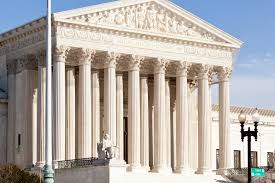Supreme Court Restricts Disgorgement Remedy

In an important case decided in June 2020, the Supreme Court, in Liu et al v. SEC, addressed the SEC’s ability to seek “equitable relief” in civil proceedings.
In 2017, the Supreme Court, in Kokesh v. SEC, ruled that a disgorgement order in an SEC action constitutes a “penalty” for purposes of application of the five-year statute of limitations. The Supreme Court left open the question of whether disgorgement can qualify as “equitable relief” under Section 78u(d)(5), given that equity historically excludes punitive sanctions.
Two petitioners Charles Liu and Xin Wang solicited foreign nationals to invest in the construction of a cancer treatment center, but an SEC investigation uncovered that the Petitioners misappropriated most of the funds in violation of a private offering memorandum. The SEC brought an enforcement action and sought disgorgement equal to the full amount petitioners had raised from investors. Petitioners claimed that the disgorgement amount omitted legitimate business expenses. The District Court disagreed and ordered petitions to pay the full amount, and the Ninth Circuit affirmed.
In an 8 to 1 decision, the Supreme Court reversed and held that a disgorgement award does not exceed a wrongdoer’s net profits and is permissible equitable relief under Section 78u(d)(5).
Section 78u(d)(5) provides: “In any action or proceeding brought or instituted by the Commission under any provision of the securities laws . . . . any Federal court may grant . . . any equitable relief that may be appropriate or necessary for the benefit of investors.” Congress did not define what specific forms and extent of relief may fall under the term “equitable relief.”

Justice Sotomayor wrote the majority opinion and explained that “disgorgement” as an equitable remedy, like “restitution,” is intended to deprive wrongdoers of their net profits. The delicate balance between disgorgement and a “penalty” is to ensure that the result is intended to deprive the bad actor from his/her unjust enrichment versus punishing the bad actor by imposing a civil penalty.
The Court explained that equitable principles has long authorized courts to strip wrongdoers of their ill-gotten gains with a variety of labels used for such actions (e.g. disgorgement, restitution), and courts haved restricted this remedy to a wrongdoer’s profits to avoid transforming an equitable remedy into a punitive punishment.
The Justices stated that to avoid transforming a profits award into a penalty, equity courts restricted the remedy in various ways. A constructive trust was often imposed on illegal gains for wronged victims and courts generally awarded profits-based remedies against individuals engaged in concerted wrongdoing, and avoided joint and several liability theories. In other cases, courts limited awards to the net profits from wrongdoing after deducting “legitimate expenses.”
Congress incorporated these principles into Section 78u(d)(5). Courts have pushed the limits on these principles. The Supreme Court’s decision in Kokesh did not decide where to draw the line between a permissible equitable remedy and penalty.
The Supreme Court left open to the lower courts on remand to decide whether the facts support imposing disgorgement liability on a wrongdoer can extend to his affiliates through joint and several liability or only support a finding of holding defendants individually liable. The common law did allow liability for partners engaged in concerted wrongdoing.

The Supreme Court’s ruling means that courts may not enter disgorgement awards that exceed the gains made by any business where the “receipts and payments are taken into account.” When the “entire profit: results from the wrongdoing,” a defendant may be denied “inequitable deductions.” In this case, the District Court did not review any of the claimed expenses to determine if they were “legitimate,” and on remand the lower courts were instructed to examine whether including such expenses in a profits-based remedy is consistent with the equitable principles underlying Section 78u(d)(5).















